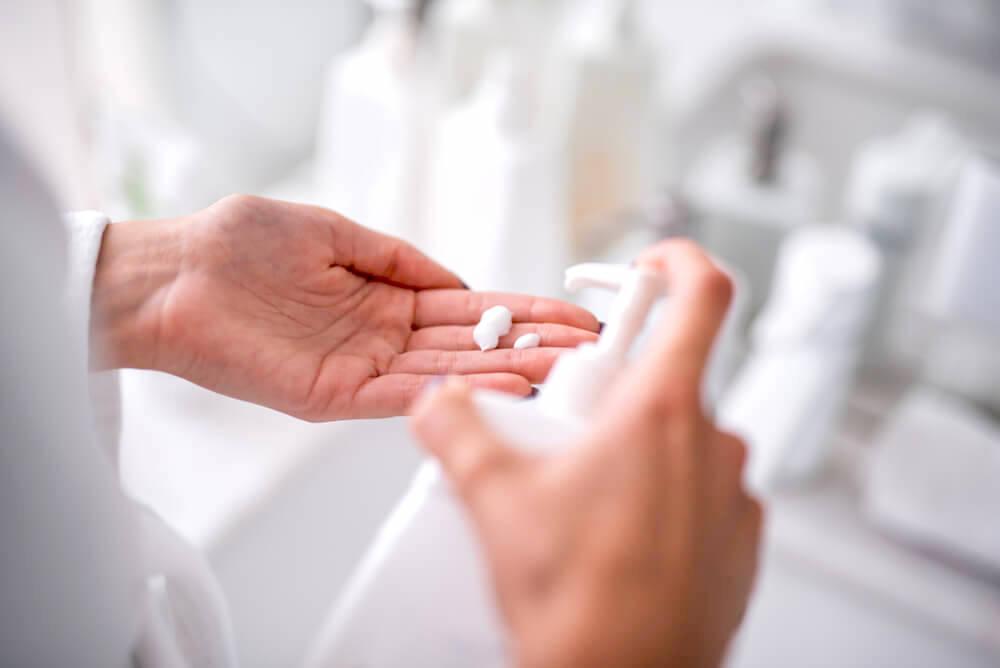You may think that you know what’s what when it comes to your skin, but there will always be more than you can learn.
From the skin changes that take place as you age to the importance of your skin’s protective barrier, here are 8 things that you should know when it comes to the largest organ in your body.
Your Skin Starts Aging in Your Mid 20s
This one is a shocker for some because many don’t really think about visible skin aging until they begin to see signs of it, therefore believing that the process has only just started.
However, it likely began long before that…
Once you reach your mid-20s, your skin begins to undergo a few changes.
Certain substances and processes within your body, designed to keep your skin healthy, begin to decline, such as:
- Collagen and Elastin – these are the two structural proteins that give your skin its smoothness and firmness
- Hyaluronic Acid – plays a key role in keeping your skin hydrated, soft and supple
- Ceramides – lipids that make up your skin’s protective layer
- Skin Cell Turnover – the rate at which your body sheds its old skin cells and replaces them with new skin cells
And that’s only the start of it all…
In order to really get ahead of the aging process, you should ideally begin an anti-aging skincare routine in your mid-20s, making use of preventative ingredients rather than specialized treatments.
Your Gut Health Has a Direct Impact on Skin Health

A healthy gut and digestive system will ensure that all of the minerals, vitamins and antioxidants that your skin needs can be properly absorbed by the skin.
Unfortunately, gut problems are all too common these days…
Why?
Because the modern lifestyle, with its unhealthy diet and chronic stress, doesn’t do much to support the gut.
What happens to your skin if your gut health is poor?
A number of things, such as:
- Acne
- Eczema and psoriasis
- Dry skin
- Rosacea and facial redness
Fortunately, there are several ways in which you can improve the health of your gut, and it will only take a couple of weeks before you start to notice the positive differences in your skin.
How can you improve your gut health?
Here are a few tips:
- Make sure that your diet contains enough probiotics and prebiotics, or take supplements if you are unsure
- Give intermittent fasting a try, as this gives your digestive system the chance to properly clear itself out
- Cut back on sugar, junk food, and alcohol, as these all damage the good bacteria in your gut. Many medications can also have the same effect
- Reduce the stress in your life, as this depletes your gut microbes
Sun Damage Occurs on Cloudy Days Too
For many people, sunscreen only enters their minds when they look outside and see the sun blazing down.
But did you know that 80% of the sun’s UV rays can penetrate through a thick cloud?
Even though you may not be able to see these rays, they’re still there, making sunscreen essential no matter what the weather is like.
Think you’re safe because you plan on spending the day indoors?
Yes, but only if you stay away from any windows. While the sun’s UVB rays are absorbed by glass, 75% of the sun’s UVA rays can penetrate through glass. This puts you at risk of sun damage while you are in the car too, or even on a plane, especially since an increase in elevation means an increase in UV radiation.
Sun damage leads to everything from wrinkles to hyperpigmentation, making this something well worth avoiding.
If you tend to forget about sunscreen, use a moisturizer or another skincare product that is formulated with SPF.
The Healthier Your Skin Feels, The Better You Will Be Able to Regulate Your Body Temperature
Your skin actually plays such an important role when it comes to regulating your body temperature.
How does it do this?
By activating its sweat glands whenever you are experiencing warm temperatures. The sweat is then released onto the skin, after which it evaporates, therefore having the effect of cooling the body down.
However, when temperatures start to drop, the blood vessels within your skin tighten. This then prevents too much hot blood from reaching the skin, which prevents heat loss and keeps the vital organs warm.
The way in which your blood vessels shrink in the cold is also why pores appear smaller and tighter in colder temperatures.
There is another way in which your skin helps to conserve heat too…
On the inside of your skin’s dermal layer lies a layer of fat, which acts as insulation during cold temperatures.
In order for your skin to be able to properly regulate your body temperature, it needs to be healthy, which includes ensuring that its protective outer layer is as strong as possible.
Adult Acne is Very Common
Acne tends to be associated with teenagers, but research shows that 54% of women over the age of 25 suffer from some type of facial acne, with body acne being similarly common.
What causes acne?
When your skin produces too much sebum, otherwise known as oil, resulting in excess sebum mixing with bacteria and clogging up your pores. Your body then reacts with an inflammatory response, resulting in breakouts.
Wondering what triggers the skin to produce excess oil?
A number of factors, such as:
- Hormonal changes
- Stress
- Certain medications
- Diet
Fortunately, there are several ways in which you can tackle your acne…
Working out the exact cause will definitely help, as this will enable you to avoid your triggers.
Your Skin Needs Nutrients From Both the Inside and the Outside

Your skin is your body’s largest organ, so you can probably imagine how your diet can directly impact your skin. A healthy diet will ensure that your skin is receiving all of the nutrients that it needs, enabling it to thrive.
What does a healthy diet consist of?
Plenty of fresh, whole foods, and a minimal amount of processed foods and sugars.
There are certain foods in particular that are especially beneficial when it comes to skin health, such as:
- Fatty Fish – fish such as salmon and mackerel are packed with omega-3 fatty acids, which replenish the skin and keep it thick, soft, and supple while reducing any inflammation
- Avocados – high in healthy fats, as well as vitamins C and E, both of which work hand in hand together
- Walnuts – contain both omega-3 and omega-6 fatty acids, as well as a range of other nutrients, including vitamins C and E, zinc, and selenium
- Sweet Potatoes – along with other red or orange vegetables, sweet potatoes contain beta-carotene. When consumed, this is converted to vitamin A in the body, which does everything from repairing and protecting skin cells to minimizing wrinkles
- Broccoli – contains lutein, which protects the skin from oxidative damage, as well as sulforaphane, which protects against sun damage
A regular skincare routine will also help to ensure that you are giving your skin all it needs.
Make sure that your skincare routine consists of at least the following:
- A cleanser and a toner
- An exfoliant
- An eye cream
- A serum for the face, and ideally one for the eyes too
- A moisturizer
- A sunscreen
Beauty Sleep is Real
You have probably heard the term “beauty sleep” before, but have you ever wondered how this phrase came about?
Well, whatever its origins may be, this term couldn’t be more true…
You may think that your entire body, including your skin, rests while you sleep, but this is not the case. During the day, your skin is hard at work protecting itself from the many onslaughts that the environment throws at it, from UV rays to pollution.
However, once night rolls around and you begin to drift off, your skin cells work to heal and regenerate themselves, performing several important processes that are vital when it comes to healthy skin. For example, collagen production is at its peak at night, meaning that you will want to support this as much as possible in order to save your skin from the visible signs of aging.
How much sleep do you need?
Around seven to nine hours a night, with the exact amount varying between individuals.
However, quality matters just as much as quantity. Your skin works much better when your body is in its deep sleep mode, making a truly restful sleep something that you should really strive for every evening.
Natural and Organic Ingredients Aren’t Necessarily Better For Your Skin

When you see the words “natural” or “organic” on a skincare label, it is easy to assume that these products are much better for your skin.
However, this isn’t true at all.
Why? For a few different reasons:
- A Lack of Regulations – unlike when it comes to food, organic skincare lacks strict regulations, and the natural claim has even less, meaning that just about anyone can slap this on their label. There are also so many different organizations that grant their own organic statuses to products, so you can never be sure of the standards that a certain product is adhering to
- You Will Be Missing Out on Beneficial Synthetic Ingredients – there are so many synthetic ingredients out there, such as retinol, that work wonders on your skin, but you will rarely find them in natural products
- “No Preservatives” is Not Necessarily a Good Thing – unless you plan on storing your skincare products in the fridge, and replacing them every couple of weeks, then your products need to have preservatives in them. Otherwise, you will only end up spreading bacteria all over your skin, while the active ingredients within the product also cause their own damage, resulting in a number of skin problems
While there are many fantastic natural and organic products out there, what you should really be paying attention to is the specific needs of your skin, making sure that any products and ingredients you use are suited to your skin type.
Your skin is an incredibly complex organ, and will likely keep surprising you throughout your life. In order to really understand what is going on with your skin, it always helps to know a little more about skin health, so that you can equip yourself with the knowledge you need to help your skin to really flourish.



SHOULD I STORE THE PRODUCT IN THE REFRIGERATOR?
Hi Vicki!
None of our products need to be refrigerated.
– Introstem